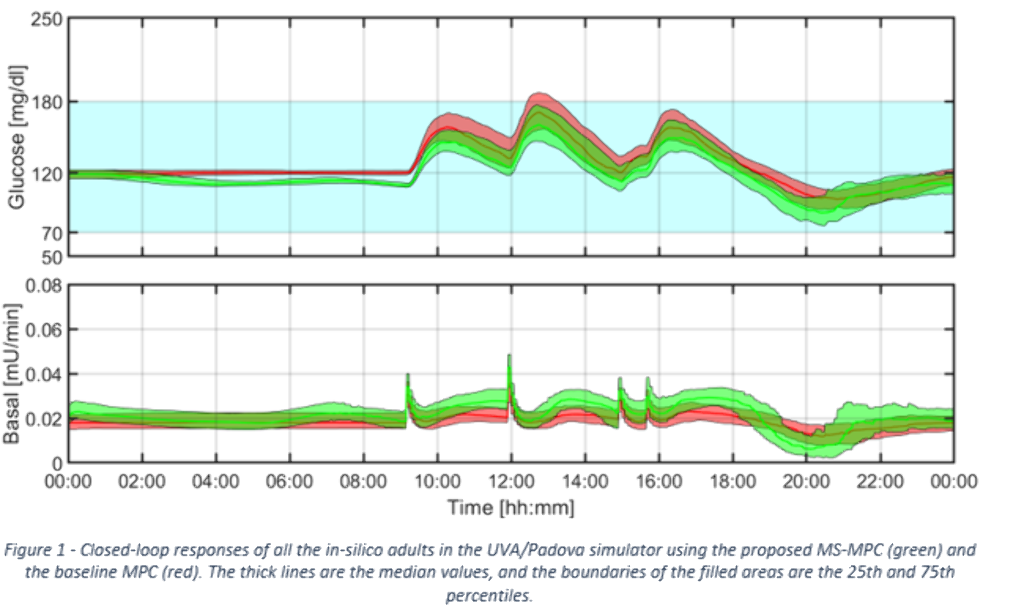Abstract
Background and Aims
Postprandial glucose control is often difficult due to the time constants associated with insulin action. We aim to reduce postprandial hyperglycemia by creating an artificial pancreas (AP) framework that anticipates meals using patterns found from past eating behavior.
Methods
Oral glucose appearance profiles were created using daily meal records (75% training, 25% testing) from a subject that exhibits well-defined eating patterns (breakfast, lunch, and dinner). The novel AP is a hybrid multistage model predictive control (MS-MPC) that treats meal profiles as glucose subsystem disturbances. Simulations using testing data were performed for all 100 adult subjects in the UVA/Padova simulator. MS-MPC results were compared to a hybrid MPC not informed by meal profiles.
Results
Compared to the control MPC, the MS-MPC achieved lower 3-hour postprandial mean blood glucose (BG) (139.80(±12.53) v. 146.62(±12.76) mg/dL, p <0.01), more time in the 70-140 mg/dL range (60.09% (±17.08%) v. 48.82%(±18.31%), p<0.01), greater time in the 70-180 range (90.25% (±10.88%) v. 87.86%(±12.48%), p<0.01), and less time >180 (9.74% (±10.86%) v. 12.14%(±12.48%), p<0.01). The BG standard deviation for the MS-MPC group was higher than the control group (24.71 (±8.47) v. 23.51(±8.02) mg/dL, p<0.01). There was no significant difference between percent time spent <54, <70, and >250 mg/dL.

Conclusions
These preliminary, in-silico results suggest that the use of anticipatory meal profiles can increase tight time in range and reduce mean BG for some subjects that exhibit regular eating behavior in a MS-MPC in comparison to a standard, well-tuned MPC.






_final12feb/thumbnails/0.png)




